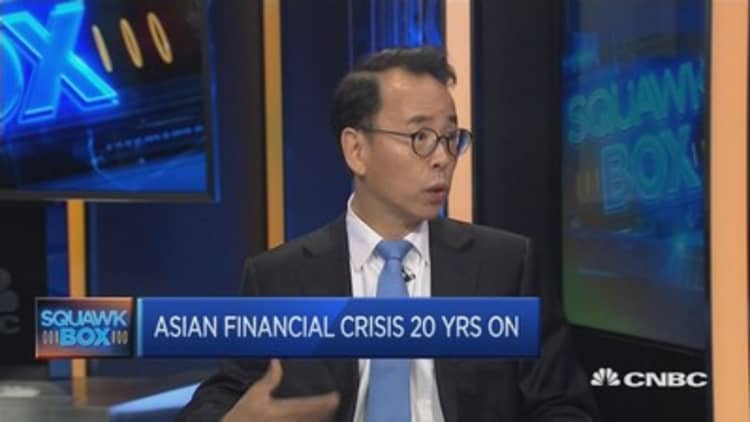
China should focus on fixing fundamental problems that may trigger a financial crisis instead of witch-hunting, an economist said Friday.
Speaking to CNBC's "Squawk Box," independent economist Andy Xie said China has managed to avoid a financial crisis now by tightening capital controls, but there's more to be done.
"Any other country would've collapsed, but China had started with that big cushion (of foreign reserves). Still the government had to crack down on capital flight. Without bottling up the country, China would be in a crisis now," Xie said.
Chinese companies and individuals have been snapping up overseas assets, prompting authorities to tighten controls on outflows such as limiting offshore investments.
Recently, several of China's largest overseas asset buyers were scrutinized on instructions from the banking regulator.
"Unfortunately, China is focusing on who's going to trigger the crisis; they are not talking about the fundamental conditions for the crisis, rather they focus on the technical aspect, on who's going to trigger the crisis," said Xie.
The recent actions from Chinese authorities, he said, are more about: "The people who took the money out last year, let's check them out, maybe send some to jail."
Experts have expressed concerns over high debt levels and the frothy property market in China, which was an issue that Xie also took issue with.
"Half of the loans in China are exposed to the property sector, that's even higher than Japan in 1989," said Xie. Japan's asset price bubble in the 1980s popped in the early 1990s.
In tier-1 cities like Beijing and Shanghai, for instance, the price for 1 square meter (10.8 square feet) could cost a buyer a year of his income.
In a "normal" city like New York and Tokyo, it would cost buyers a month of income for the same area, he added.
"So if you want 100 square meters to start a family, that means 100 years of income," Xie said.
Chinese property prices have "a long way to fall," he said, likening it to Japan 25 years ago.

